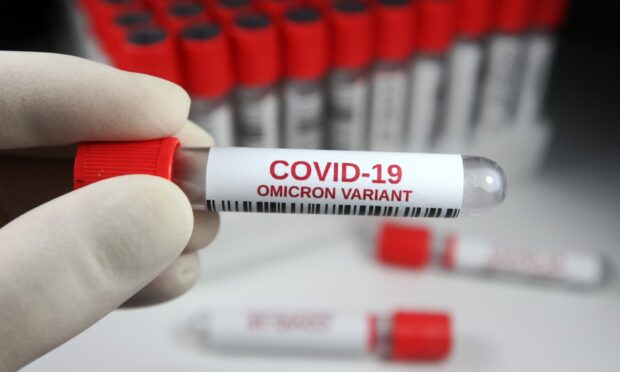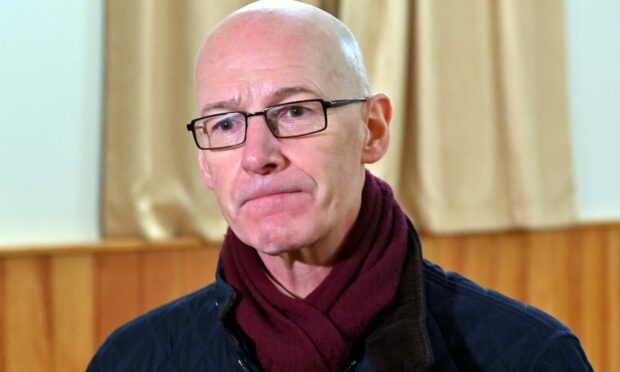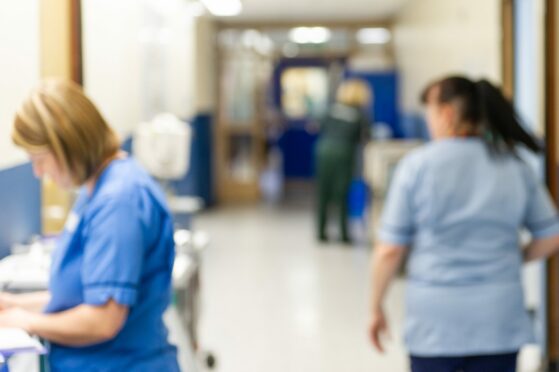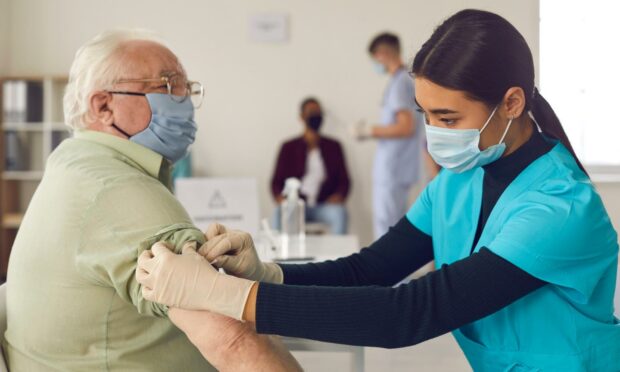The Scottish Government is giving “active consideration” to reducing the number of days for self-isolation, according to the deputy first minister.
Last week John Swinney said that the Scottish Government was considering shortening the isolation period in line with the UK government.
Speaking on BBC’s Good Morning Scotland, the cabinet secretary for Covid recovery said they are now looking closely at the clinical evidence emerging around self-isolation.
He said: “The key question is whether or not the period that is required for self-isolation is necessary to ensure that we interrupt the circulation of the virus.
“That must be the key consideration and obviously that is the judgment that we will form on the clinical advice and evidence presented to us.”
Since December 22 anyone in England who is fully vaccinated and tests positive for Covid will only need to self-isolate for seven days.
This is on the condition they receive negative lateral flow tests on days six and seven of their isolation period.
Mr Swinney has again said that the Scottish Government is giving “active consideration” to shortening the self-isolation period.
However, he explained that if people return to the labour market, healthcare and the wider circulation if they are still sharing the virus that will “defeat the point” of self-isolation.
If the Scottish Government is given reason to believe that reducing the self-isolation period is safe they will share their findings with parliament to make a “careful and considered” judgment.
First Minister Nicola Sturgeon is expected to give a Covid update this afternoon.
Is self-isolation putting the NHS under pressure?
The deputy first minister said that the NHS is under pressure for a variety of reasons, including Covid and normal winter demands.
Mr Swinney also explained that the decision to reduce the self-isolation period will be based on evidence, ministers will not take the burden on the NHS into account as a reason to reduce the period.
He said: “We’ve got to come to a conclusion about whether or not there is a clinical argument whether or not it is safe for people to take a lesser period of self-isolation.
“We already have such exemptions in place for some health and social care workers and other critical workers where if they are for example in the same household as someone else who has tested positive, provided they have the booster vaccination, provided they’ve got a negative PCR test, provided they’re doing daily lateral flow tests they can return to their work.
“It’s not a blanket situation in relation to critical workers, what we’ve put in place is that pragmatic set of arrangements that address the needs but also to protect the ability of our system to be assured they are not sharing the virus should they have tested positive.”
Mr Swinney stressed that the Scottish Government has invested significantly in the NHS over a number of years. He added that they have taken steps to try reduce the GP workload.
However, the government is now “wrestling” with the impact of a global pandemic which is why they are needing to make such “tough decisions” to protect the NHS.
Economic difficulties of Covid
The cabinet secretary explained that ministers have had discussions with a range of different sectors, including hospitality, sporting authorities, and taxi drivers.
He said: “There’s a lot of economic difficulties being faced by different sectors which is why the Scottish Government has dug deep into our resources to find £200 million to put on the table to provide financial support.
“We welcome the support given the UK Government has given of £75m but we as a government in Scotland do not have the financial flexibility to go further than what we have put on the table.
“It’s a really difficult ask for us to get as far as we have got we do not have the same borrowing powers as the UK Government has.”
Mr Swinney explained that they have now asked the UK Government to bring forward “targeted furlough arrangements” to help the hospitality sector.
He stressed that over Hogmanay and New Year hospitality businesses are able to remain open, however, they are operating with some rules in place including table service and reduced capacities.
The Scottish Government will review these restrictions on January 11, which is the conclusion of the three-week period.
Omicron ‘galloping’ through Scotland
The deputy first minister highlighted the high numbers of positive Covid cases across the country over the last four days.
“People can see with their own eyes the galloping pace of which Omicron is moving through Scotland,” he said.
“I think people recognise the seriousness of the situation of which we are faced with and they are acting responsibly in that context, so I think members of the public are responding to that call.
“I’d encourage them to do so and I’d also encourage any member of the public who has not yet had their booster to go and get one this week.
“There are plenty of appointments available around the country, there is plenty of capacity to allow that to be undertaken and that is perhaps the best thing people can do with their Christmas and New Year break if they are having one, to make sure they are boosted before the end of the year.”



